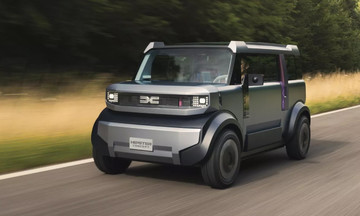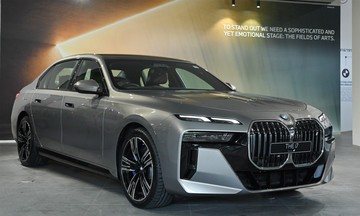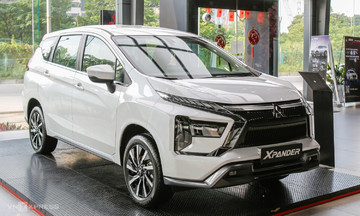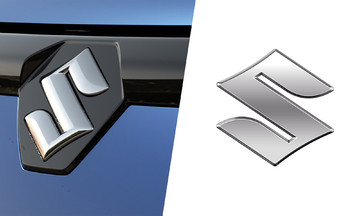Nissan's sales dropped 6% to 1.61 million vehicles in the first half of 2025, its lowest in 16 years, according to company announcements and research firm MarketLines. This decline pushed the company out of the top 10 global automakers.
Nikkei Asia reports that Nissan plans a comeback, including the launch of a new Leaf electric vehicle (EV) in Japan later this year. However, restructuring will remain challenging if sales growth doesn't recover.
Nissan's 1.61 million vehicles sold represent the lowest figure since 2009 when sales were 1.54 million. This marks the first time since comparative statistics began in 2004 that Nissan has fallen out of the top 10.
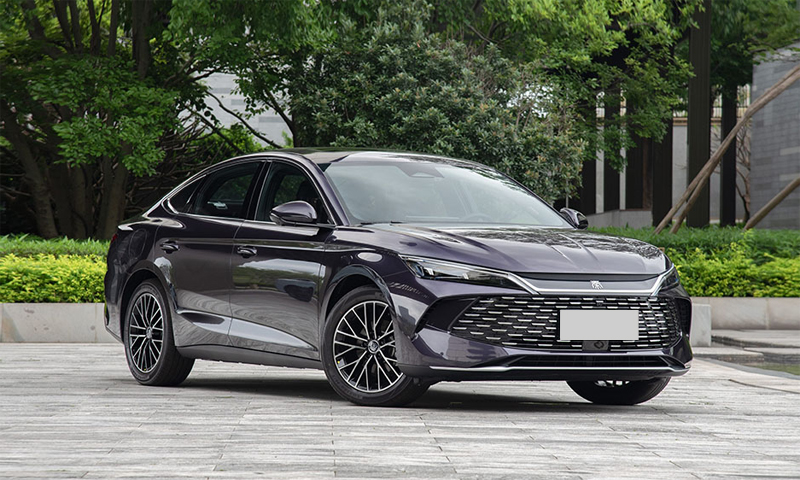 |
The BYD Qin L DM-i PHEV, a hybrid sedan priced at 12,300 USD in China. Photo: TopEV |
The BYD Qin L DM-i PHEV, a hybrid sedan priced at 12,300 USD in China. Photo: TopEV
Nissan's second-quarter consolidated financial results reveal a loss of 115.7 billion yen (785 million USD), contrasting with a profit of 28.5 billion yen in the same period of 2024. This is the fourth consecutive quarter of losses for the company, with declining sales impacting profitability due to fixed costs like factory operations.
The decline is especially pronounced in China, a key market for Nissan. Sales there fell 18% to 270,000 vehicles, a 60% drop from the 720,000 peak in 2018. The N7 EV sedan, launched in April, is priced competitively at 119,900 yuan (16,727 USD) and is selling well, but overall recovery in the Chinese market will take time.
In the US, Nissan's limited hybrid offerings and a strategy to restrain sales incentives caused the company to miss out on the pre-tariff sales surge.
In Japan, Nissan's sales decreased 10% to 220,000 vehicles, the lowest since comparable data collection began in 1993. Chief Financial Officer Jeremie Papin expressed concern about this decline at the July earnings call, attributing it to declining consumer confidence in the company.
Nissan's decline coincides with the rise of Chinese EV makers. BYD's sales increased 33% to 2.14 million vehicles, moving the company from 10th place in the first half of 2024 to 7th this year.
Geely, China's second-largest automaker, climbed from 11th to 8th place. This is the first time both Chinese companies have surpassed Nissan in the first half of the year.
Suzuki sold 1.63 million vehicles, surpassing Nissan by 20,000 and securing the 10th spot. While dropping from 9th place in 2024 due to being overtaken by Chinese manufacturers, this marks the first time since 2004 that Suzuki has outsold Nissan. Just five years ago, Nissan sold over 800,000 more vehicles than Suzuki.
Toyota and Volkswagen maintained their positions at number one and two, respectively.
Looking ahead to the second half of 2025, both the US and Chinese markets face uncertainty.
In China, the world's largest auto market, a price war is intensifying. BYD's July sales saw only a slight increase to 340,000 vehicles, a sharp drop from previous double-digit growth. As competitors flood the market with low-priced EVs, even BYD struggles to maintain its high growth rate.
The US, the world's second-largest auto market, has imposed a 15% tariff on imported cars from Japan, Europe, and South Korea, making higher import taxes the new norm. If these tariff costs are passed on to consumers, demand could decrease, further negatively impacting sales.
Nissan plans to launch a fully redesigned Leaf in Japan later this year, its first complete model change in eight years. The company hopes for a boost from new model launches, but most of its core models—like the Elgrand and Skyline—won't be updated until 2026 or later. With a continuing shortage of new models, the latter half of 2025 could also be challenging.
My Anh




